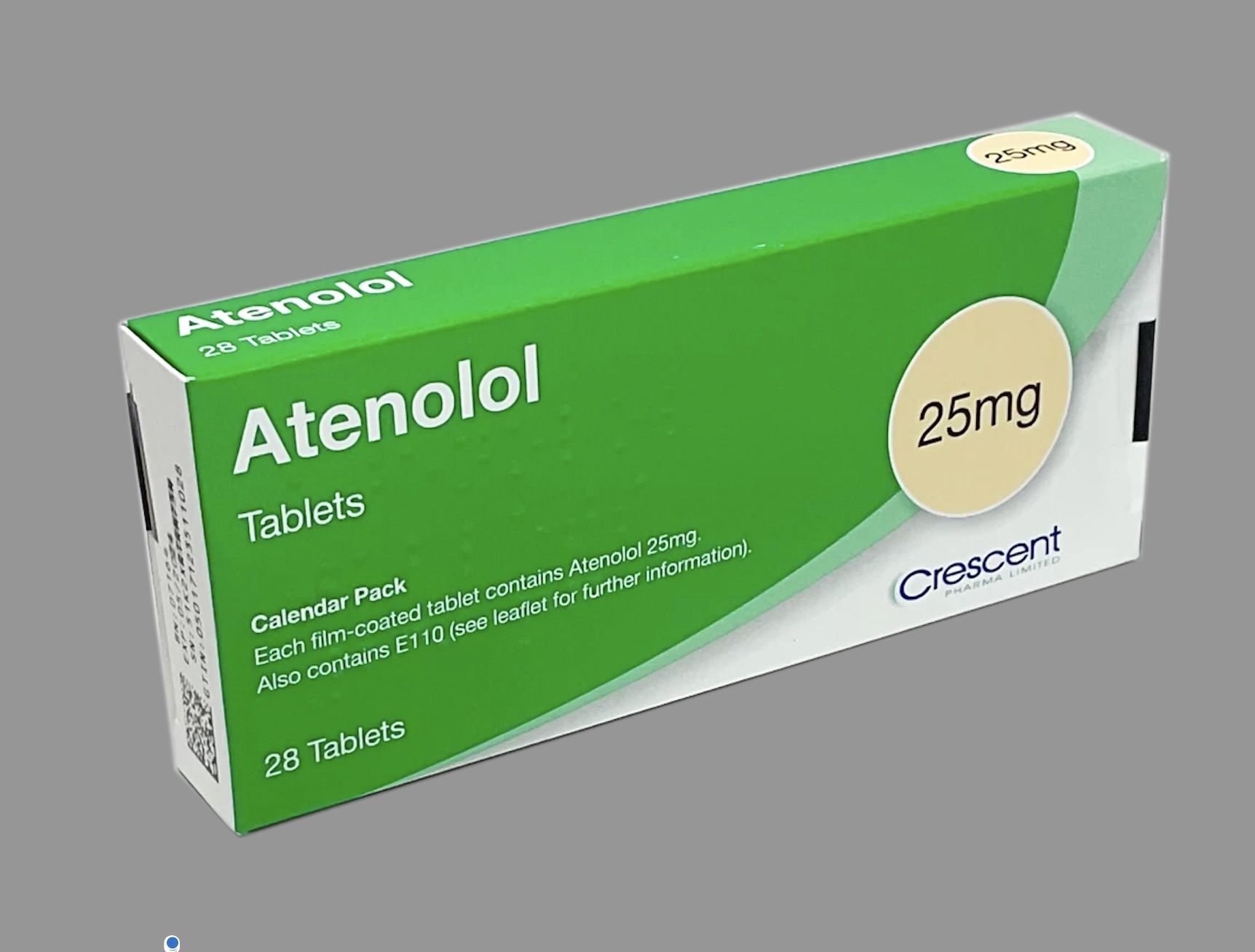Atenolol: Health Benefits & Risks
What are the health benefits of Atenolol?
Atenolol is a medication primarily used to treat high blood pressure (hypertension), chest pain (angina), and certain types of irregular heart rhythms (arrhythmias). It belongs to a class of medications called beta-blockers, which work by blocking the action of certain natural chemicals in the body that affect the heart and blood vessels. Some of the health benefits of Atenolol include:
- Blood pressure control: Atenolol helps to lower blood pressure by blocking the effects of adrenaline on the heart and blood vessels, which reduces the workload on the heart and helps to relax blood vessels, allowing blood to flow more easily.
- Angina relief: Atenolol can help reduce the frequency and severity of chest pain (angina) episodes by improving blood flow to the heart muscle and reducing the heart’s workload.
- Arrhythmia management: Atenolol can help stabilize certain types of irregular heart rhythms (arrhythmias) by slowing down the heart rate and reducing the force of contractions, allowing the heart to beat more regularly.
- Heart attack prevention: Atenolol may be prescribed to help prevent future heart attacks in people who have already had a heart attack.
- Migraine prevention: Atenolol is sometimes used to help prevent migraine headaches, although the exact mechanism of action is not fully understood.
- Anxiety and stage fright: Atenolol may be used to help control symptoms of anxiety and stage fright by blocking the physical effects of adrenaline, such as increased heart rate and tremors.
It’s important to use Atenolol only as prescribed by a healthcare provider and to follow the recommended dosage instructions. Atenolol can cause side effects and may not be suitable for everyone. If you have any questions or concerns about Atenolol, talk to your healthcare provider.
What are the health risks of Atenolol?
Atenolol, like all medications, can cause side effects and carry certain health risks. It’s important to be aware of these risks and discuss them with your healthcare provider before starting treatment. Some of the health risks associated with Atenolol include:
- Hypotension (low blood pressure): Atenolol can cause a drop in blood pressure, which can lead to symptoms such as dizziness, lightheadedness, and fainting, especially when standing up quickly. This effect is more likely to occur in people with pre-existing low blood pressure.
- Bradycardia (slow heart rate): Atenolol can slow down the heart rate, which can be beneficial in some cases but can also cause symptoms such as fatigue, dizziness, and fainting, especially in people with pre-existing heart rhythm disorders.
- Heart failure: In some cases, Atenolol can worsen heart failure, especially if the heart is already weak. It’s important to monitor heart function closely in people with heart failure who are taking Atenolol.
- Bronchospasm: Atenolol can cause bronchospasm (narrowing of the airways) in people with asthma or chronic obstructive pulmonary disease (COPD), leading to symptoms such as wheezing, chest tightness, and difficulty breathing.
- Masking of hypoglycemia: Atenolol can mask the symptoms of hypoglycemia (low blood sugar) in people with diabetes, making it harder to recognize and treat.
- Peripheral vascular disease: Atenolol can worsen symptoms of peripheral vascular disease (narrowing of blood vessels in the extremities), leading to symptoms such as cold hands and feet, numbness or tingling, and poor wound healing.
- Depression: Atenolol can worsen symptoms of depression in some people, leading to feelings of sadness, hopelessness, and loss of interest in activities.
- Other side effects: Atenolol can also cause other side effects, such as fatigue, weakness, nausea, and impotence.
It’s important to use Atenolol only as prescribed by a healthcare provider and to follow their instructions carefully. If you have any questions or concerns about Atenolol, talk to your healthcare provider.
TL; DR: Atenolol Summary
Atenolol is a medication that is used to treat high blood pressure, angina, and certain heart conditions. It is a type of beta blocker that works by slowing down the heart rate and reducing the force of the heart’s contractions.
Here are some key facts about Atenolol:
- Mechanism of action: Atenolol works by blocking the effects of epinephrine (adrenaline) on the heart, which helps to slow down the heart rate and reduce the force of the heart’s contractions.
- Indications: Atenolol is approved by the FDA to treat:
- High blood pressure
- Angina
- Certain heart conditions, such as hypertension and cardiac arrhythmias
- Dosage: The usual dose of Atenolol is 25-100 mg taken once or twice a day, depending on the individual’s response to the medication.
- Side effects: Common side effects of Atenolol include:
- Dizziness
- Fatigue
- Headache
- Nausea
- Vomiting
- Depression
- Anxiety
- Warnings: Atenolol can cause serious side effects, including:
- Heart block (a condition in which the electrical impulses that control the heartbeat are disrupted)
- Pneumonia (a type of respiratory infection)
- Increased risk of stroke
- Increased risk of heart failure
- Interactions: Atenolol can interact with other medications, including:
- Insulin and oral antidiabetic medications
- Anti-anxiety medications
- Antidepressants
- Sedatives and tranquilizers
- Pregnancy and lactation: Atenolol should be used with caution during pregnancy and lactation. It is recommended to consult with a healthcare provider before taking this medication during these times.
- Overdose: Atenolol can be dangerous if taken in large quantities. Symptoms of overdose may include:
- Slowed heart rate
- Low blood pressure
- Confusion
- Dizziness
- Coma
It’s important to note that Atenolol should only be used under the guidance of a healthcare provider and should be used in combination with a healthy lifestyle, including a balanced diet, regular exercise, and stress management.




